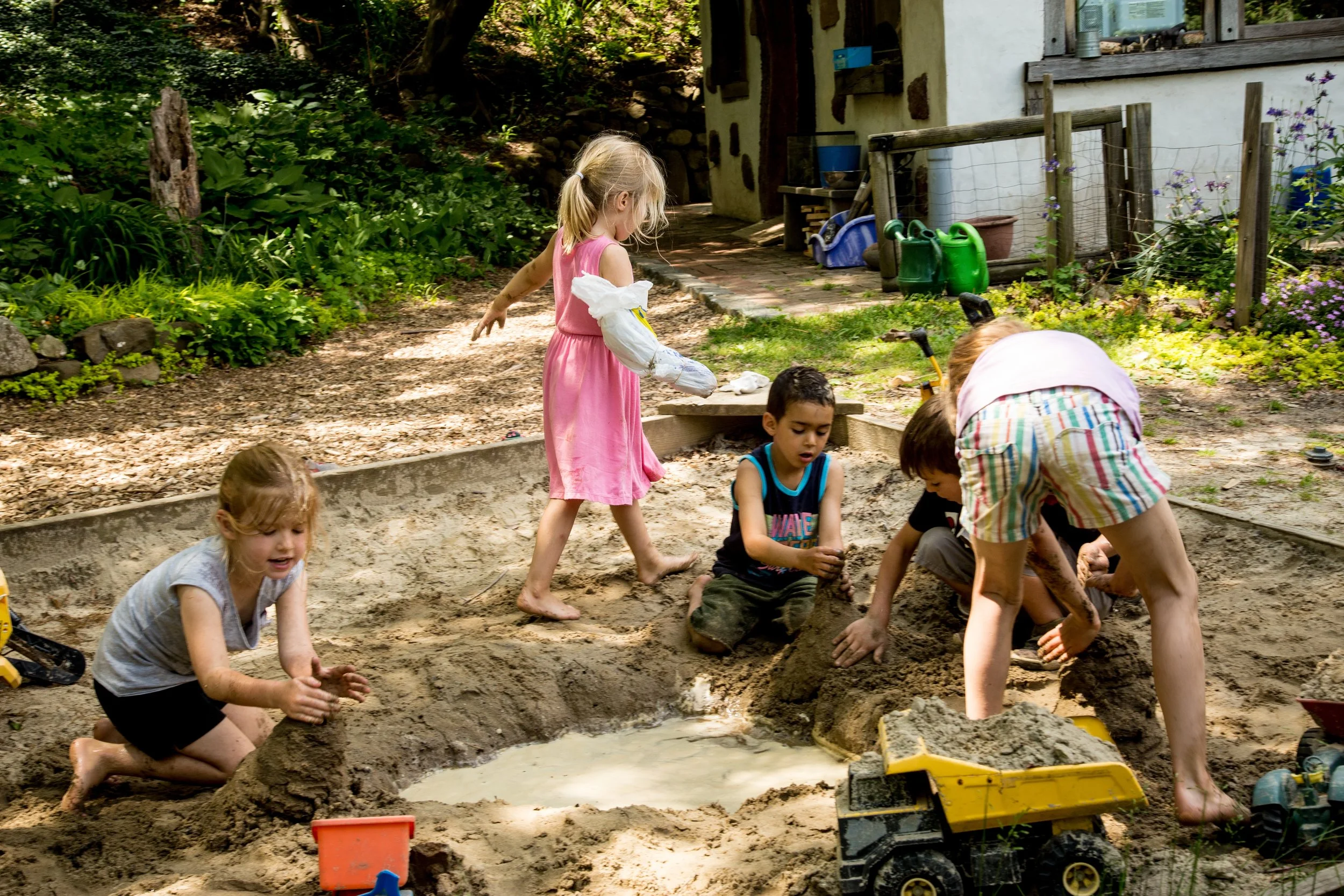Kindergarten
Kindergarten students come to school every morning at 9 am and stay until noon for the minimum half-day program, or stay until 3:15pm for an optional full day. Parents can choose full days for certain days of the week, or for every day of the week. The possibility of gradually expanding a child’s participation at school serves our youngest students well as they become more comfortable leaving home and engaging in school activities.
Our Kindergarten Program
is organized in such a way that, periods of free play alternate with periods of focused activity. We encourage learning through play because our intention is to nourish the children’s natural curiosity and innate desire to learn. We strive to help the children develop the confidence and security needed to take risks in thoughts and experiences that lead to new understandings. We do this by engaging the whole child – mind, body and feelings. Learning to work together and to listen and respect each other are important parts of the social learning that happens while children negotiate decisions on the playground, help each other in “circle,” partner during directed activities as well as in the unstructured play. It is in unstructured play where so much important learning is done.
As members of a classroom community, we encourage the children to express their own thoughts and feelings while at the same time they learn to listen and respect others, both children and teachers. Within our daily gatherings at circle time, Spanish, snack, music, art, and other group activities, we create opportunities for the children to develop their creativity, and their ability to pay attention, to follow directions, and to function as part of a joyous community.
Stories are told every day in Kindergarten,
creating an opportunity for children to listen and to imagine themselves within the stories. The storytelling often sparks a dialogue as to what might happen, what the character should do, the fairness of it all or how the children can relate the story to their lives. The children also create stories every day that are acted out, drawn, narrated, or written. These activities, along with the songs we sing, the games we play, and the props created to go along with dramatic play, are just some of the ways we encourage self-expression and build a strong foundation for reading and writing.
Math often comes up organically throughout the Kindergarten day, seen in the counting during snack set-up, a subtraction problem during a story, or taking turns making rhythms for the others to follow with clapping hands or stomping feet. There are also many materials and activities available to the students. The children build with unit blocks, create pictures with pattern blocks, put together jigsaw puzzles, and use dice in board games. More structured math activities include sorting and classifying materials, counting along with simple addition and subtraction problems, and recognizing shapes and spatial relations through origami and math manipulatives. All of these experiences contribute to the development of mathematical reasoning in the children that comes from a place of understanding.






